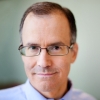8 Things To Look For At The 70th World Health Assembly
This year’s World Health Assembly is not a typical one. This one is a very big deal.
Electing a new Director-General for the WHO and setting the organization’s budget for the next 2 years are on #WHA70’s record-breaking 9-day agenda. (See the provisional agenda here). So it’s clear this year’s conclave will have an outsized impact on WHO’s future. Still tarred by a flawed response to West Africa’s Ebola outbreak, the organization is seeking to bolster its position as the world’s preeminent health authority.
These issues, of course, do not include the normal course of business of charting the WHO’s course on critical issues affecting global health. To make sense of the blizzard of topics to be considered by the nearly 4,000 delegates from 194 countries, a WHO source offered Global Health NOW an insider’s guide to the most pressing issues to watch.
8. Dementia
The WHA will be considering a draft action plan for the public health response to dementia. More than 47 million people worldwide have dementia, and that number increases by 7.7 million each year, according to WHO.
7. A Slew of Important Decisions
The Assembly will be making decisions on a host of issues including sepsis, substandard and falsified medical products (newly renamed!), noncommunicable diseases, deafness and the role of health sector in the strategic approach to international chemicals management.
6. 2 Sensitive Issues
2 political issues involving Palestine and Taiwan will be sure to draw attention. The Assembly’s Committee B will consider health conditions in the occupied Palestinian territory, including “east Jerusalem, and in the occupied Syrian Golan.” And Taiwan has pushed to be part of #WHA17 but apparently has been blocked by China, The Diplomat reports. Since 2009, the Taiwan delegation has attended as an observer. Discussions are ongoing, and Taiwan is reportedly sending a delegation sans invite, according to Intellectual Property Watch. The issue may be discussed at the Assembly.
5. Polio Transition
Efforts against polio are closing in on a great success: In 1988, 350,000 cases of paralyzed children were reported every year. Last year, 37 cases were documented. (And this year so far: 1 reported case). What happens when polio is eliminated? Celebrations, no doubt. More important is the question of what to do with the skilled workers funded by the Global Polio Eradication Initiative that have made this near-success possible. A polio update presented to the delegates considers this issue.
4. Margaret Chan’s Last Assembly
#WHA17 is the last WHA for the current WHO Director-General Margaret Chan. WHO has engaged in a bit of reputation burnishing with a report on WHO’s work during Chan’s tenure from 2007 to this year. It also has released a companion, independent-ish report titled “Healthier, Fairer, Safer” by the highly respected Sir Liam Donaldson. Look for flowers and encomia for Chan at WHA but also some pretty frank assessments.
3. Health Emergencies
With another Ebola outbreak threatening Africa—this one in the Democratic Republic of Congo—the health emergencies and preparedness issue will consume a significant amount of focus at the WHA. Topics to be considered include the “Report of the Independent Oversight and Advisory Committee for the WHO Health Emergencies Program.” The IOAC offered positive reviews for WHO’s response to Zika and its handling of the yellow fever outbreak, which included vaccinating 30 million people. And based on visits to Colombia, Nigeria and Iraq, the IOAC said WHO is improving but warns that the gains are “fragile.”
2. The Budget
Every other year, the WHA comes up with its 2-year budget plan. Delegates are expected to approve a 2018-2019 budget of US$4.4 billion—$81 million increase over 2016-2017. One way to cover the increase: Chan has proposed a 3% increase in the assessed contributions from the member states (a major reduction from the 10% increase Chan originally proposed). But don’t look to the US: It headed in the other direction a couple weeks ago when it cut $640 million in funding for UN agencies in its budget through September.
1. The DG Election
Despite all of these important issues, most people in the global health community will remember #WHA17 for the election of the new Director-General. The 3 finalists—Tedros Adhanom, David Nabarro and Sania Nishtar—have been crisscrossing the globe seeking votes. Their efforts will culminate on May 23 as the delegates make their selection—the first time that the 3 candidates have been proposed to the World Health Assembly. Most WHO watchers consider Tedros to be the front-runner, but in a secret election with the possibility of multiple ballots—and a lot of horse-trading—anything can happen. Stay tuned, and watch it live via WHO’s webcast.
Ed. Note: See all of GHN’s #WHA70 coverage here. Follow us on Twitter (@GHN_News) and Facebook. https://www.facebook.com/Global-Health-NOW-1359505927455440/
Want to share a tip or a story idea or connect with GHN editor-in-chief Brian Simpson in Geneva? Please be in touch.
Join the thousands of subscribers who rely on Global Health NOW summaries and exclusive articles for the latest public health news. Sign up for our free weekday enewsletter, and please share the link with friends and colleagues: Subscribe to GHN




